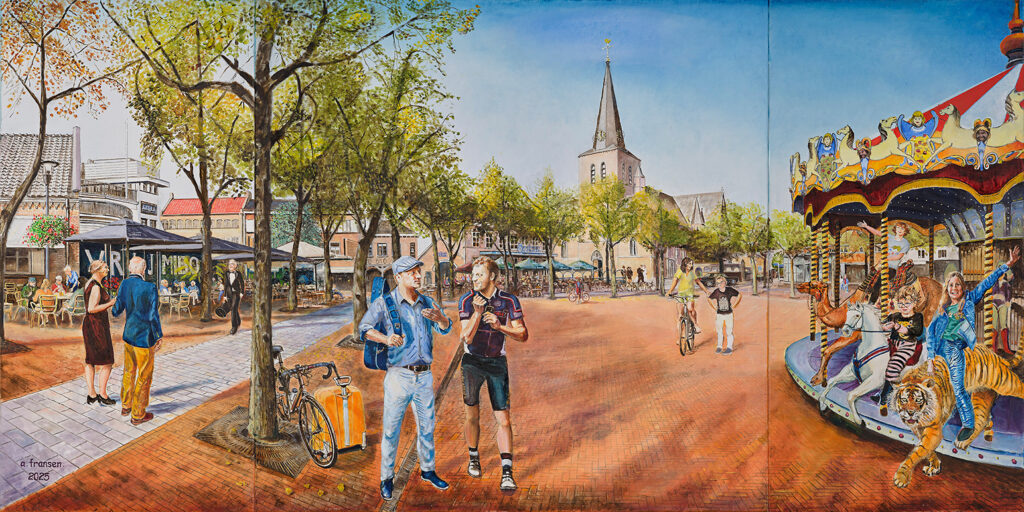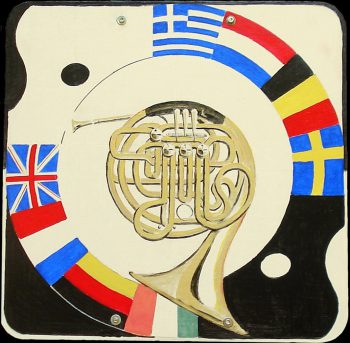
Mallemolen (“merry-go-round”)
or Memento diem
oil on canvas (cotton)
100×200 cm (triptych 50+100+50 cm)
March 2025
Mallemolen (“merry-go-round”) represents a wondrous contradiction. Seen from the outside in, the machine-like predictability of the carousel spins, enriched by the similarly programmed music of a book organ. Seen from the inside out, the environment around us spins. That environment, our world, hopefully remains unpredictable, invitingly beautiful and challenging for the child (even in us as adults).
Reminiscence:
Le Carnaval Romain by Hector Berlioz opus 9 1844
» Read more
Both nostalgia and euphoria resonate here, as I also want to show in the painting.
What is the one thing this world revolves around?
This question I put to my guests at the vernissage of this painting in museum De Wieger on 13 March 2025.
These days, it feels like everyone’s obsessed with collecting information about each other. That’s fine on its own, but when just a handful of people control all that data, it gives them serious power—maybe even more than having loads of money does.
The apostle John, however, preached long ago that what matters is love for one another—knowledge yes, but not power; he didn’t get that from just anyone.
Indeed, this work is first and foremost about love; the affection between partners, between brothers, sisters, parents and children and also between friends. All this is set against the backdrop of freedom. The freedom to be with each other in safety in the first place. The freedom to talk about all things joyful and sorrowful and to engage in social debate in direct contact with each other. After all, the social debate is seen as the basis of democracy, but to avoid polarisation, if at all possible not via social media. Even if personal confrontation is abrasive, it does sharpen the mind—or, to use a Dutch idiom, zonder wrijving geen glans (“without friction no shine”‘), as is commonly known among painters.
VRIJMIBO is short for Vrijdagmiddagborrel or “Friday afternoon drinks”, a beloved tradition for Liesbeth and me with our friends, at five o’clock sharp.
VRIJ (“free”), as a syllable prominently present in the scene, stands for the freedom described above. Apart from being a qualification, it is also colloquially used as a verb, meaning “to love” in a very broad sense.
» Read less
